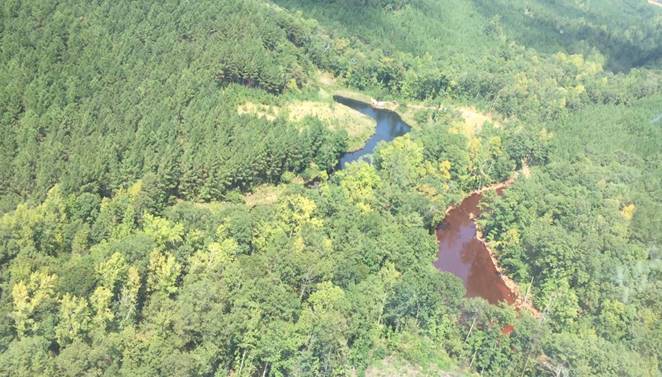
By Glynn Wilson –
MOBILE, Ala. — A major gas pipeline that was discovered broken and leaking at least 250,000 gallons last week in rural Shelby County, south of Birmingham near Helena, has government and industry officials hopping to contain the leak, shore up any impact on the price of gas, and assure the public about potential health and environmental effects in the area near the sensitive Cahaba River.
Alabama Governor Robert Bentley issued an executive order on Thursday declaring a state of emergency, but not over health or environmental impacts. The concern is all about fuel shortages from lost gasoline supply due to the broken pipeline that connects gas refineries in Houston, Texas to suppliers all the way to New York.
A similar order was issued in Georgia, where the company is based in Alpharetta, and where the supply of gas to the major metropolitan area of Atlanta could see shortages due to the lost supply from the network of pipelines owned and operated by the Colonial Pipeline company, which touts itself as the operator of the largest refined products system in the United States.
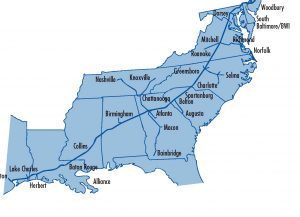
A map of Colonial Pipeline’s Line 1, which carries gasoline from refineries in Houston to suppliers along the east coast and ends at New York Harbor: Courtesy Colonial Pipeline
According to the company’s website, it is responsible for the delivery of more than 100 million gallons of refined oil and gas products each day to markets between Houston and New York, serving more than 50 million people. It is responsible for transporting refined petroleum products such as gasoline, diesel fuel, jet fuel, home heating oil and fuels for the U.S. military, and its network of pipelines involves more than 5,500 miles of underground pipe and above ground storage tanks and pump stations.
“Based on current projections and consultations with industry partners, parts of Georgia, Alabama, Tennessee, North Carolina and South Carolina will be the first markets to be impacted by any potential disruption in supply,” the company said in a statement. “Colonial has briefed officials in these states and will continue to provide timely information to the public so that they can plan accordingly.”
The executive orders in Alabama and other states will allow fuel delivery truck drivers to work longer shifts and exceed maximum hour limits established by the U.S. Department of Transportation, in the effort to try to prevent gas shortages and price spikes.
In Bentley’s order, he reminds companies that “it is unlawful for any person within the State of Alabama to impose unconscionable prices for the sale of any commodity during the period of a declared State of Emergency.”
The company is altering a parallel pipeline that normally carries diesel fuel and heating oil to handle some of the demand and some suppliers are already beginning to ship refined gas in barges and tanker ships to try to bolster the supply.
The broken pipeline section in Shelby County, which has been shut down since Friday after being discovered by a worker with the Alabama Surface Mining Commission on Thursday, typically handles 1.3 million barrels per day of refined gas “and other petroleum products,” some of which gets stored in large tank farms in places like Pelham.
According to some local reporting, the federal Environmental Protection Agency and the Alabama Department of Environmental Management had officials on the scene, who were trying to assure residents that they were not in danger from air pollution or potential explosions or fires, and discounting any potential impacts on endangered species and wildlife in and around the Cahaba River.
The company says repair crews of more than 500 workers will be “working around the clock” to repair the busted pipeline and clean up the spilled gas, which is being contained in a mining retention pond. Workers have apparently plugged the pipe on both sides of the breach, while any gas left inside is being pumped out. An EPA spokesman said there could still be some danger from gas in the pipeline, which could still be leaking.
A local environmentalist praised the company’s efforts, according to local reporting, hoping the weather will remain calm and and gas will not reach the river, but vapors create a safety concern for clean-up workers and there is still a risk of an explosion or fire. Apparently the U.S. Occupational Safety and Health Administration has set up air monitoring stations, and if fumes reach 10 percent of the concentration level to make combustion possible, workers would be ordered to evacuate the area. Aviation officials also placed a restriction on the airspace over the spill in case of explosions.
The company says it is hoping to dig out the pipeline by the weekend and have repairs completed, although a company spokesman said everything depends on “environmental conditions” and how to maintain public and worker safety.
“We’re not going to rush this,” he said. “We are anxious to repair the pipeline. This is a significant piece of infrastructure in the United States for supplying petroleum products to airports, to major markets, to minor markets and it’s not lost on us that this issue is affecting the supply and distribution system.”
EPA spokesman Chuck Berry, in the area to enforce the Clean Water Act, tried to reassure the public by pointing out that the spill is in a sparsely populated, rural area, only accessible by dirt roads, which are now closed off to all but emergency traffic.
Berry said the nearest home is about 2.5 miles away, where other roads have been converted to one-way streets to allow easier traffic flow for response vehicles. Trucks are transporting spilled gas to a Colonial Pipeline tank farm in Pelham for treatment.
Berry praised the company for its efforts so far to meet the obligations of the law.
“They have mobilized an army to respond to this spill,” he said. “I would say it’s been better than adequate.”
The state agency will be charged with enforcing remediation of the spill site and removal of contaminated soil.
Of course, as in all spills, the volume estimates to date are probably low, and will be updated as the crisis continues.
According to a statement posted on a special page about the disaster on the company’s website, worker activity was “intermittent” overnight “due to unfavorable weather conditions that caused gasoline vapors to settle over the site,” forcing the company to revise clean up time and spill estimates already.
The initial estimate of the gas release reported to the National Response Center last weekend was 1,000 barrels, based on a preliminary evaluation, but has already been updated to 6,000 barrels, taking into account average daily evaporation rates and the volume of gas recovered during the response so far.
“Operations are resuming as officials deem conditions safe,” the company says. “The top priority of the unified response effort remains the safety and protection of the public, responders, and the environment. There are no threats to the public at this time and the situation has been confined to the incident site.”
But Mobile Bay and Alabama Sierra Club spokesman David Underhill pointed out that the public has been assured over and again that pipelines and other means of transporting fossil fuels are safe, including rail, when in practice disasters seem inevitable and are always worse than initial reports indicate.
He was involved in the fight two years ago when more than 200 people packed a Mobile Bay conference center to fight a Canadian Tar Sands crude pipeline through Mobile’s watershed.
“Two years ago the newly laid pipeline that connects the port of Mobile with the giant refinery in Pascagoula, Mississippi began pumping crude oil. It runs through the watershed of Big Creek Lake, the reservoir providing drinking water to about a quarter million people in the city of Mobile and vicinity. Those of us opposing this foolish scheme were assured by the courts and the army’s Corps of Engineers, which approved the project, that the pipeline was safe and that we were hysterical,” he said. “Since then two pipelines have ruptured in California, contaminating land and water with hundreds of thousands of gallons of crude, and now a north Alabama pipeline has leaked an unknown — but huge — volume of gasoline.
“Imagine if breaks like these had happened in the crude pipeline crossing the watershed of Mobile’s reservoir. The city’s drinking water would be tainted and the emergency backup source would be a constant convoy of tanker trucks bringing water from elsewhere or the Mobile river, which is a sewer for the chemical plants and mills lining its banks,” he said. “So we watch with great interest the encampment in North Dakota by thousands of Sioux and allies at the construction site of an oil pipeline that would threaten their water supply, and we note that they have succeeded, for the moment at least, in stopping the work there.”
According to the Energy Wire and other sources, the number of spills reported at oil and gas production sites shot up slightly more than 17 percent in recent years, even as the rate of drilling activity leveled off.
There were at least 7,662 spills, blowouts, leaks and other mishaps in 2013 in 15 top states for onshore oil and gas activity, according to an EnergyWire analysis of state records. That’s up from 6,546 in the states where comparisons could be made.
That adds up to more than 20 spills a day.
Many of the spills were small. But their combined volume totaled more than 26 million gallons of oil, hydraulic fracturing fluid, “fracking” wastewater and other substances. That’s the same volume as what gushed four years ago from BP PLC’s ruptured Gulf of Mexico oil well in 11 days.
Shelby County residents and community members may call the Colonial Pipeline Community Assistance Hotline at 1-866-601-5880 with any questions.
More Pictures
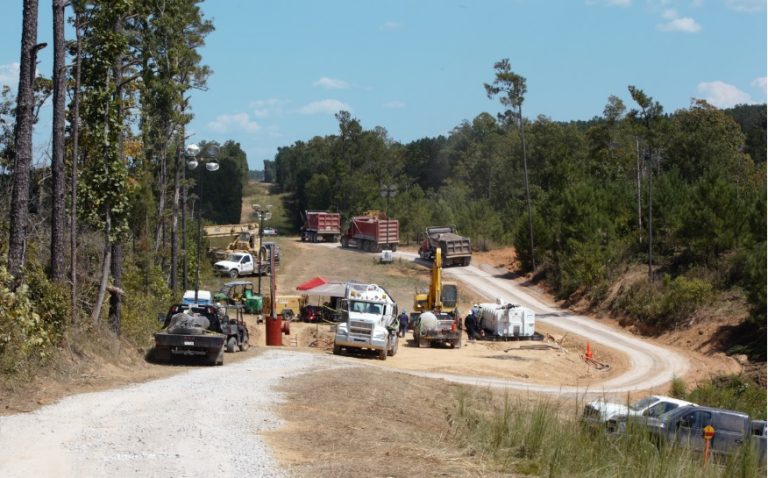
Workers on the scene: Colonial Pipeline
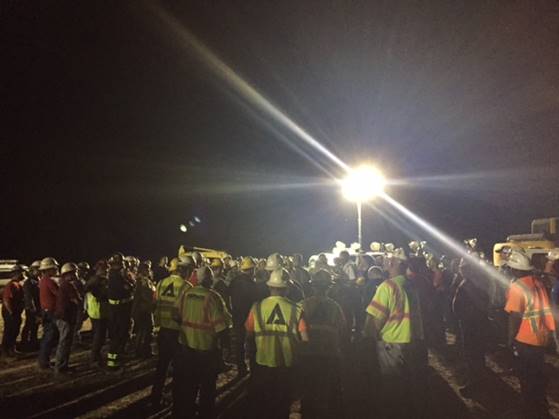
Workers on the scene of the disaster: Colonial Pipeline
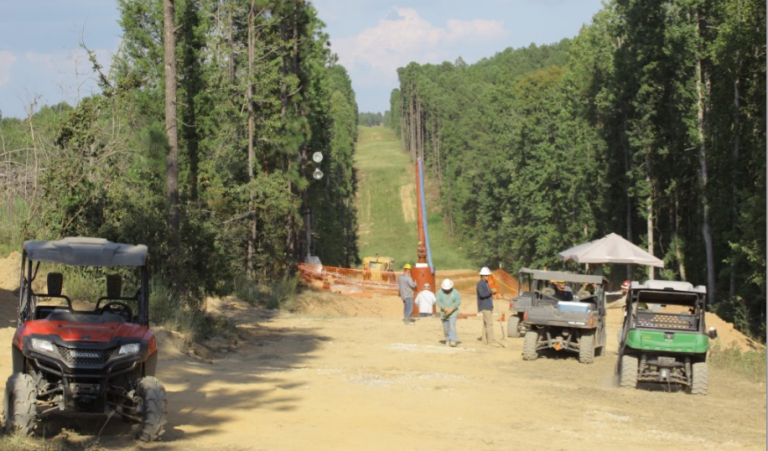
Workers on the scene of the disaster: Colonial Pipeline
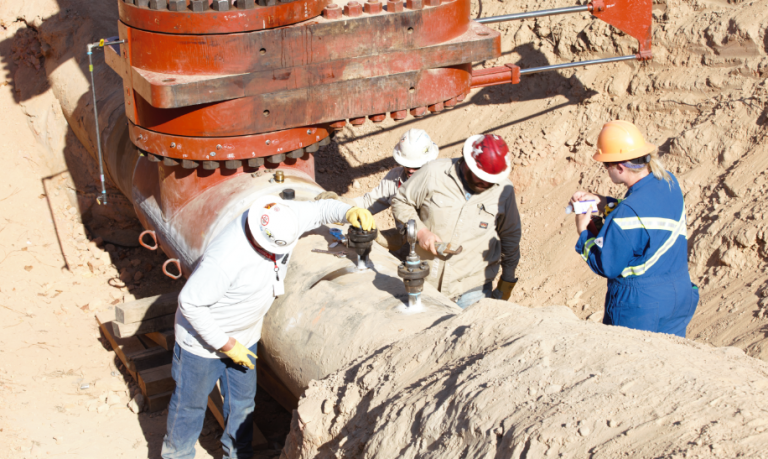
Workers on the scene of the disaster: Colonial Pipeline
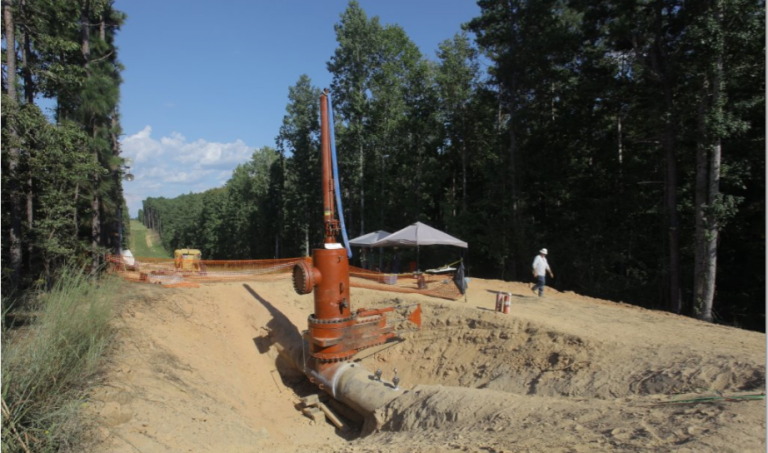
Workers on the scene of the disaster: Colonial Pipeline
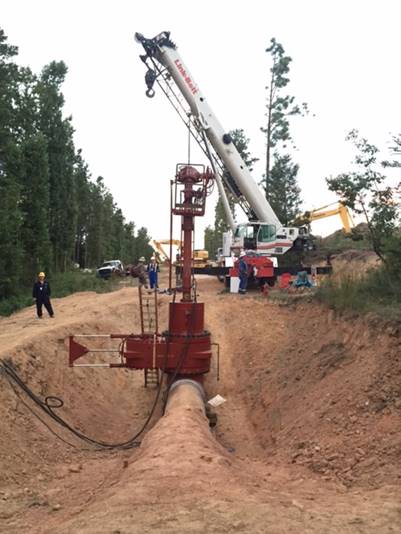
Workers on the scene of the disaster: Colonial Pipeline













